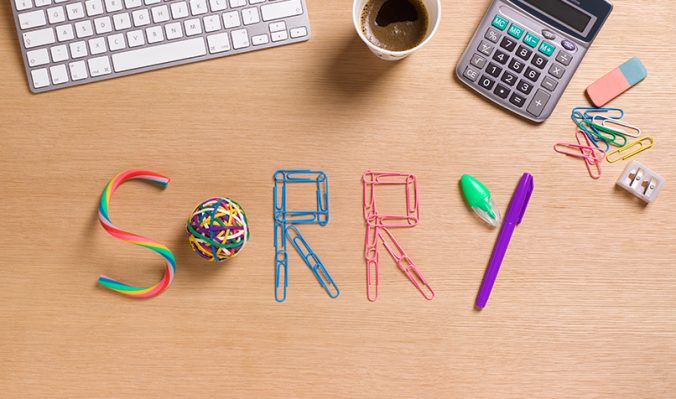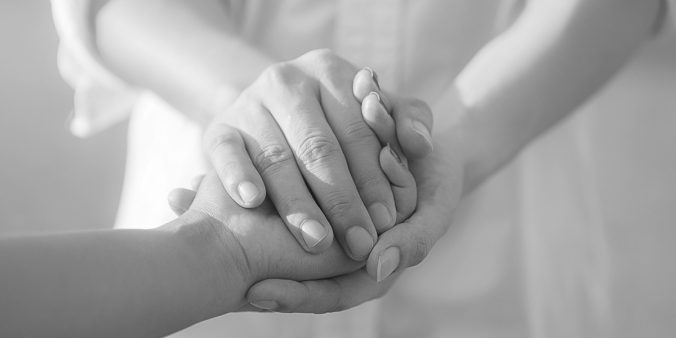It might be a good idea to write a rough draft of the forgiveness letter first. Put all of your thoughts down on paper – whatever comes to mind – and don’t hold back.
Write words that describe your emotions and thoughts about the event, both when it actually happened, and in the time after the event.
All my romantic relationships have ended quickly and painfully. I often compared the new men in my life to the old ones. From my former boyfriends’ mistakes, I always found a reason to walk away from the current one.
I even occasionally returned to old boyfriends in hopes that things would change, but they never did. Over time, the anger of past injustices reappeared many times, and I couldn’t overcome it.
A few years ago, I decided to make a change for myself. I stopped communication with all my exes to rid the poison I thought they brought to my life. At first it was liberating, but soon the old feelings of regret and pain came back. I couldn’t stop being a victim and feeling hurt for what was done to me. I finally understood that the only way to be truly free from anger was through forgiveness.
This year, I started writing letters to each of the men whom I’d loved and then hated for so long. I told them my feelings, good and bad, and apologized for the part I played in ending each relationship. Lastly, I forgave them for the mistakes they made- the mistakes that haunted me for years. I sealed each letter with a wish for their happiness and a kiss. I have never felt more content and free than when I placed those letters in the mail. It gave me the resolution that I needed, to say what my heart felt in its entirety and let go.
As I finished sending the last letter, I knew that my heart was ready to love without the burden of past misfortune. I can finally give myself completely to love without excuses or being a victim.
I met my ex-girlfriend while we were both in recovery for alcoholism. We dated for a few months until she relapsed. There were always two voices in the back of my head: one telling me this relationship wasn’t healthy and I needed to walk away, and the other telling me to stick it out. That second voice told me I could lead by example, that if he could see how I was improving my life by being sober, he would do the same.
I kept holding on tighter, afraid he would leave and that I wasn’t good enough. When he did leave, abruptly, I was devastated. I expected him to fill that void that was still inside me, despite all the work I was doing on myself. My codependency flared up in all sorts of unhealthy ways: stalking Facebook, obsessing over what I could have said or done to make him stay, resting all my self-worth on his opinion of me. I was against feeling anger toward him because I felt I deserved to be treated this way.
With time, a network of support, and my higher power, I went back to the basics of my program: one day at a time. Each day was a struggle, redirecting my thoughts from negative/obsessive to reflective/self-loving. Eventually, I acknowledged and felt my anger and could let him go. When I find myself wanting to check on him or obsess, I redirect my thinking to my progress and what I could do with this experience to help others. I choose not to hold on to the negativity of that relationship but the self-awareness and love I’ve cultivated thus far in myself.
Today, I thank him for leaving. What I’ve learned by feeling and releasing my anger and choosing to forgive is that people come in and out of our lives every day, and they all teach us something about ourselves. If we’re open-minded, we can reap the benefits and in turn, help others.
Challenge:
- On a separate piece of paper, write a letter of forgiveness to someone toward whom you’ve felt bitter and angry (to send or to burn as an act of release).
For reflection:
- What are some things you’ve wanted to tell this person about their actions and how they affected you?
- What’s prevented you from sharing these things in the past?
- If you’d like to maintain a relationship with this person, what, if anything, do you need from them to do that?
How did it go?
- Was this a cathartic experience for you? Did you decide to send or burn the letter?
How to forgive someone who has hurt you:
Step 1: Move On to the Next Act. …
Step 2: Reconnect to Spirit. …
Step 3: Don’t Go to Sleep Angry. …
Step 4: Switch the Focus from Blaming Others to Understanding Yourself. …
Step 5: Avoid Telling People What to Do. …
Step 6: Learn to Let Go and Be Like Water.
There are 9 more steps….



